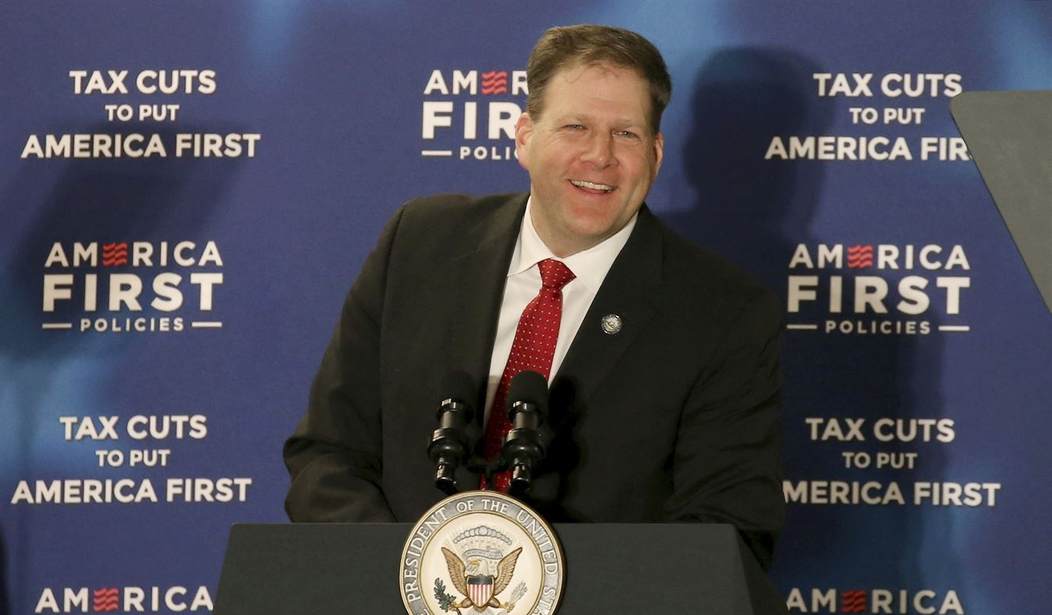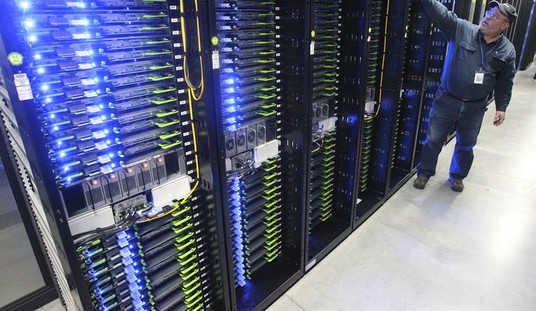After a bit of a gap since my last entry into the possible GOP presidential field, New Hampshire Governor Chris Sununu made the media rounds and dropped some not-so-subtle hints that he’s toying with the idea of jumping into the fray sometime in the latter half of 2023.
As always, my job is to neither advocate or admonish, but to assemble the positives and the negatives of a Sununu candidacy so that you can understand who he is and what role he may or may not play in the process to succeed Joe Biden in 2025.
The case for Chris Sununu
1. Location, location, location – He is a successful Republican governor of a Northeast state that has Democrat for president every cycle since 2000 when it voted for George W. Bush. New Hampshire if often referred to as a swing state, and has offered some Republican senators and statewide officeholders over the years, but it has been a fairly blue state in campaigns for the White House, and having a Republican governor not just winning once, but winning reelection handily is a strong selling point. If you can compete and win in New Hampshire, other states like Michigan, Wisconsin and Pennsylvania are very similar demographics and should be in play.
2. Home field advantage – New Hampshire famously is the first in the nation primary. Regardless of whatever stunt Joe Biden and the Democrats do this cycle, even if they try to move South Carolina up to 2023 in order to be first, New Hampshire will still go two weeks earlier. They will remain first in the nation. Sununu is pretty popular in New Hampshire, but he will still have to run the traps with voters of the Granite State to see if he passes muster for president. He’d be an early favorite to win in his home state.
3. Family matters – Being a governor instead of a senator or congressman is an edge in a contest against Joe Biden, because Biden has shown that being in Washington, D.C. for 50 years, even as Vice President for eight of those years, doesn’t mean you’ve got a skill set at running anything. Sununu not only has a fairly conservative record running New Hampshire, he also has a good family lineage with D.C. experience. His brother, John, was a Senator and Congressman, so a Sununu campaign would have some experience from which to draw on to navigate personalities on Capitol Hill. Sununu’s father, John Sr., was also a governor of New Hampshire and was White House Chief of Staff to George H.W. Bush. He’d be a very powerful advisor and mentor to a Chris Sununu campaign.
4. Education reform – Sununu signed a version of a backpack school choice bill so that lower income families can take the state money allotted to that student and use it wherever they see fit – private, charter, parochial schools, and it has shown to have a positive impact.
5. Taxes can always go lower – Sununu has been a proven tax cutter, signing reform measures when Republicans controlled the statehouse, and vetoing tax increases when the Democrats controlled it. He’s an absolute fiscal hawk. It’s probably his single biggest policy position.
The case against Chris Sununu for president
1. Ripe enough to run? – At 48, he’s just at the front edge of the sweet spot for the big job. If he runs and loses, he establishes his name ID on a national stage and could easily run again in his 50s. He has plenty of time. Were he to make a run of it now, he will probably run into the argument that he’s a little too green and needs more seasoning.
2. Here come the judges – In an interview with Hugh Hewitt a week or so ago, he was asked if he would continue with the precedent set by Donald Trump of giving a list of possible names from which he would nominate were a vacancy to occur on the Supreme Court. He definitely is not a fan of that idea, and would keep that pretty close to his chest. His record as governor on judges isn’t bad, but his opinion on the importance of judicial picks to the Republican electorate may be a little naïve. In my opinion, the list of judges offered by Donald Trump helped sell him to conservatives in 2016. Sununu doesn’t think most voters care much about it as a voting issue. That remains very much to be seen.
3. Re-defining the abortion argument – In perhaps the most controversial element of the interview with Hewitt, Sununu proudly proclaimed he was pro-choice. Now that doesn’t mean he supports abortion, especially at later stages, because he clearly doesn’t. But he is attempting to be a little too cute by half in how he discusses the issue by saying if you support abortion at any point after conception, even if you don’t at 12-weeks, or 15-weeks or 24-weeks, that makes you pro-choice. I’m not sure pro-lifers are going to quite buy that rhetorical gamesmanship. It comes across as a flippant answer to a very serious issue the country is now grappling with since Dobbs got handed down. Sununu also was split on the Court’s Dobbs decision. The states rights side of him supported the ruling, but he also viewed Roe/Casey to be precedent, and threw a little subtle shade at Justices Gorsuch/Kavanaugh/Barrett for not being honest during their confirmation hearings. Hard to see how he’s going to navigate that position with other GOP candidates on a debate stage, and then with pro-life Republican voters nationally.
4. Traffic jam – A lot of candidates will get into the fray and compete from the conservative end of the party. Whether it’s people like Mike Pompeo, Tim Scott, Ted Cruz, Ron DeSantis, Mike Pence, Glenn Youngkin, there will be a lot of people vying for clean air in that particular lane. But if Sununu gets in, he’ll probably join outgoing Maryland Governor Larry Hogan and former New Jersey Governor Chris Christie, and then all of a sudden, the center-right lane becomes much more crowded as well. Sununu is a pretty good debater, but so is Christie. And Hogan has four more years of experience governing in a blue state than Sununu does, so Sununu will have to work to get some room among that wing of the party outside of the friendly confines of New Hampshire.
5. Not learning media lessons from history – Sununu is a believer that if anyone in media comes calling, you as a candidate or an elected official should take that opportunity and run with it. That’s not the growing conventional wisdom amongst the Republican Party and a lot of the perceived candidates when it comes to the nominating process during the primaries. We all remember in 2012 when former Bill Clinton campaign staffer George Stephanopoulos hounded Mitt Romney about the legality and availability of birth control, an issue on the minds of exactly zero Republican voters, in an early GOP primary debate. Legacy media types are not there to conduct fair debates. They’re usually lefties worried about lefty issues and trying to offer up gotcha traps in order to make any perceived GOP challenger look bad. Republicans have largely been resorting to making sure Republicans ask Republicans question sets for Republican primary debates, and then blowing up the Presidential Debate Commission in the fall since they are also run by lefties.
Sununu acknowledges the media is tilted and biased to the left, but doesn’t want to do anything about it, instead relying on his ability to debate and react on the fly. He may very well be that good of a debater, but it sure comes across as awfully naïve.
Sununu is certainly in no hurry to get into the race, and is in no hurry for anyone else to get in the race, either. But make no mistake, he’s flirting mightily with the idea, talking to potential fundraisers and other possible campaign operatives. When debates begin to be announced in August or September of 2023, don’t be surprised if Sununu at least dips his toe in the water. He’d love to see it through to the New Hampshire primary, whenever that may be, and then see what happens.
Future editions of this series will include the South Carolina contingent – former Governor Nikki Haley and current Senator Tim Scott, as well as possible runs by Texas Governor Greg Abbott and maybe another wild card or two. Stay tuned in the weeks and months ahead.








